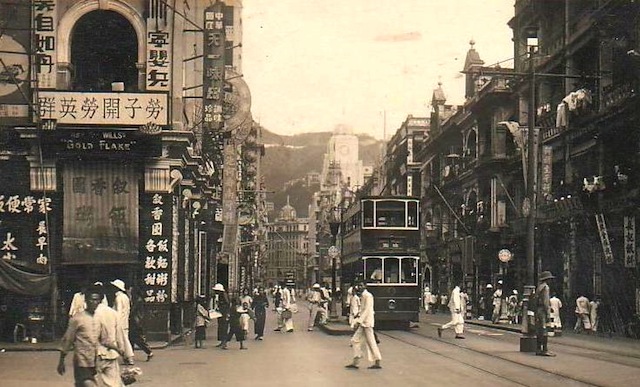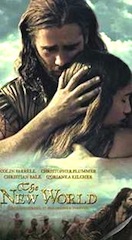
| |
Director: Terrence Malick, 2005
This visually stunning film is set amid the first encounter of English and indigenous North
American cultures during the founding of the Jamestown settlement in Virginia in 1607.
A unique interpretation of the classic tale of Pocahontas and her relationships with
adventurer John Smith and aristocrat John Rolfe that take her from the untouched beauty
of the North American wilderness to the center of high society in Stuart England at the
dawn of the British Empire.
© New Line Cinema
|
|
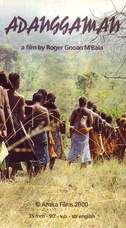
| |
Director: Roger Gnoan M'Bala, 2000
In West Africa during the late seventeenth century, King Adanggaman leads a war against
neighboring tribes, ordering his soldiers to torch enemy villages and take captives to
sell to European slave traders. Ossei, a strong-willed young man,
sets out to rescue his mother when their village is raided. This Ivoirian film addresses a rarely acknowledged though controversial aspect of the history of slavery: the active
role of Africans in supplying human cargo for the Atlantic slave
trade.
© New Yorker Films
|
|
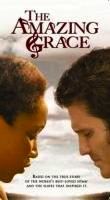
| |
Director: Jeta Amata, 2006
The subject of this moving Nigerian film is the life and misdeeds of Captain John Newton, the
infamous English slave trader who in later life repented, became an Anglican clergyman, and
penned the lyrics of the popular hymn "Amazing Grace". The plots follows Newton while he
was in West Africa and his interaction with one particular slave woman who forced him to see
the humanity of his victims as well as his own.
© Nu Metro Productions
|
|
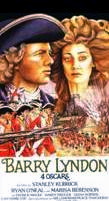
| |
Director: Stanley Kubrick, 1975
In a small village in eighteenth-century Ireland, Redmond Barry is a young farm boy in
love with his cousin Nora. When she becomes engaged to a British captain, Barry
challenges him to a duel and wins. He then flees to Dublin and, with no other
alternative, assumes a false name ("Barry Lyndon") and joins the army to fight in the Seven Years
War. An excellent period film that brings to life the privileged world of the
Anglo-Irish Protestant ascendancy. Based loosely on the 1844 picaresque
romance by William Thackeray. © Warner Home Video
|
|
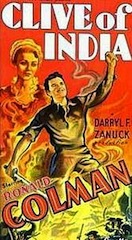
| |
Director: Richard Boleslawski, 1935
Ronald Colman stars as Robert Clive, a humble clerk in the East India Company, who is
frustrated by his lack of advancement and transfers to the military arm of the Company, where he
excels. Clive's leadership and gift for manipulation strengthened Britain's hold over India, allowed
him to amass great personal wealth, and made him one of the first heroes of the British Empire.
© 20th Century Pictures
|
|

| |
Directors: Ben Loeterman and Eric Stange, 2006
This docudrama miniseries tells the story of the Seven Years War that began along the
western frontier of Britain's North American colonies and spread to Canada and ultimately
around the world. The story follows George Washington, then a brash and ambitious young
officer hoping to make his reputation in the army. It also focuses on the critical military
importance and strategic diplomacy of Indian tribes in the conflict between the British
and French for the expansion of their colonial empires.
© WGBH
|
|
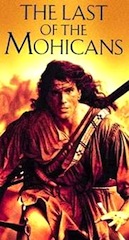
| |
Director: Michael Mann, 1992
This film is set during the Seven Years War in the frontier areas of New York west of
the Hudson River. While French and British forces and their Indian allies fight for
control over North America, the colonists struggle to defend their settlements and
families. The plot follows "Hawkeye", a European settler raised by the dying
tribe of Mohicans, and his interactions with the British and Indians.
Based loosely on the 1826 book by James Fenimore Cooper.
© Twentieth Century Fox
|
|
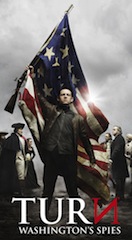
| |
Creator: Craig Silverstein, 2014
This AMC television series is set in Suffolk Country, Long Island, during the early years
of the American war for independence. Abraham Woodhull, a farmer from the town of Setauket,
and his childhood friends form a spy ring in the service of General Washington’s rebels.
They report on the movement of British forces while trying to avoid the suspicions of
American loyalists in their own communities who are on the lookout for rebel spies and
sympathizers.
© AMC
|
|
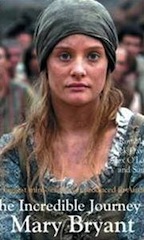
| |
Director: Peter Andrikidis, 2005
This mini-series tells the story, based on real events, of a young and destitute Cornwall
woman convicted of theft and transported on the first fleet to the penal colony in Sydney Harbor in 1788. The
hardships of the long sea journey and life in the penal colony are graphically depicted as is
the indifference of British officials to the reckless behavior and desperation of the transported
convicts. A harrowing portrayal of eighteenth-century English criminal justice as well as the
earliest European settlement of Australia.
© Bridge Entertainment
|
|
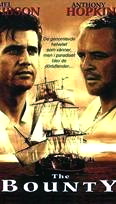
| |
Director: Roger Donaldson, 1984
This film retells the familiar story of the mutiny that occurred aboard HMS Bounty during
its return voyage from Tahiti in 1789. The plot follows the breakdown of discipline and morale
aboard the ship, the efforts of lead mutineer Fletcher Christian to get his men beyond the reach
of British retribution, and the epic voyage of Captain Bligh to get his loyal crewmembers safely
to East Timor in a tiny lifeboat.
© Goodtimes Home Video
|
|
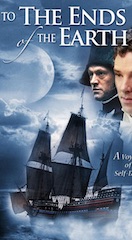
| |
Director: David Attwood, 2005
A gripping tale of a group of British migrants on a six-month voyage to Australia in the early nineteenth century. Along the way, young Edmund Talbot, an aspiring civil servant traveling to take a post under the governor of New South Wales, keeps a journal recording his impressions of the crew and his fellow passengers. Filmed at sea aboard a replica period ship, this TV series captures well the rigors, discomfort, tedium and terror of an antipodean sea voyage in the Age of Sail. Based on the trilogy of novels by William Golding.
© BBC/Power
|
|
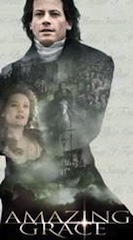
| |
Director: Michael Apted, 2006
An inspiring but highly romanticized portrayal of the effort by William Wilberforce to bring
an end to the slave trade in the British Empire. As a young MPs, Wilberforce and his friend
William Pitt the younger face daunting odds against the economic interests of the British sugar and
slave trades and their influence in Parliament. The film captures well Wilberforce's tenacity and
the power of his oratory and religious faith during the decades-long campaign to abolish slavery.
© Bristol Bay Productions
|
|
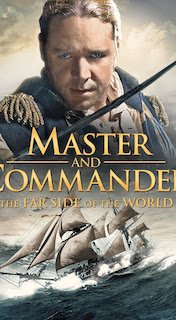
| |
Director: Peter Weir, 2003
This extremely authentic film is based on two of the novels from the popular series
by Patrick O'Brian. The story follows the exploits of British naval hero Captain
Jack Aubrey ("Lucky Jack") as he leads the crew of HMS Surprise around the tip of South
America in pursuit of the French warship Acheron. The fast-paced story and attention
to historical detail provide a compelling view of naval warfare in the age of sail.
© Fox Searchlight
|
|
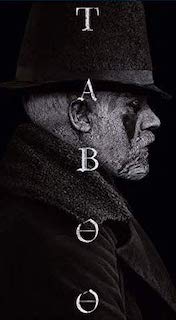
| |
Directors: Kristoffer Nyholm and Anders Engström, 2017
In 1814, adventurer James Delaney returns to London to settle family affairs and rebuild his
late father's shipping empire. His inheritance, Nootka Sound, a remote harbor on the Pacific
coast between British Canada and the United States, is highly desired by the British government
and the East India Company, and both will stop at nothing to obtain it. A dark and gruesome
depiction of political and business corruption, violence, and the misery of the working classes
in early 19th-century London. © BBC
|
|
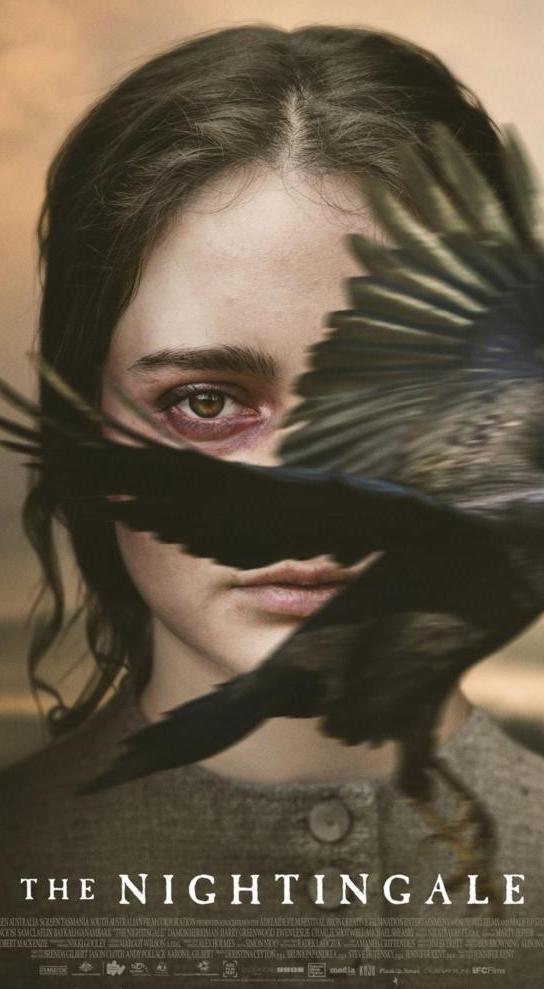
| |
Director: Jennifer Kent, 2018
Set in 1825 in the penal colony on Van Diemen’s Land (present-day Tasmania). Clare, a young
Irish convict woman, pursues a British officer through the rugged Tasmanian wilderness, bent
on revenge for a terrible act of violence he committed against her family. Along the way she
joins up with an Aboriginal tracker named Billy also marked by trauma from his own violence-filled
past. Spoken mostly in English, with some Irish and reconstructed Aboriginal Tasmanian.
© IFC Films
|
|
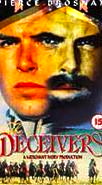
| |
Director: Nicholas Meyer, 1988
In 1825, Lt. William Savage, a reform-minded District Officer in the service of the East
India Company, undertakes to rid his district of what the British viewed as the two greatest
problems of Indian society: "Suttee" (widow immolation) and "Thuggee" (a secret cult of robbers
and murderers). Savage's actions are eventually thwarted by his profit-minded Company superiors,
but not before he attempts to infiltrate the cult and become one of the "deceivers." Based
on the 1952 novel by John Masters.
© Warner Home Video
|
|
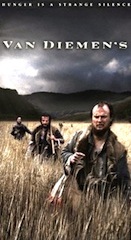
| |
Director: Jonathan auf der Heide, 2009
This Australian thriller is based on the true story of Alexander Pearce, the country's most notorious convict. In 1822, Pearce and seven fellow convicts escaped from the Macquarie Harbour Penal Station at Sarah Island in Van Diemen's Land (present-day Tasmania). The plot chronicles the increasingly desperate struggle of the eight men to survive as they move deeper into the Tasmanian wilderness.
© Screen Australia
|
|
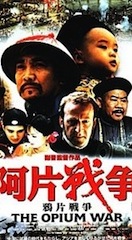
| |
Director: Xie Jin, 1997
This Chinese epic tells the story of the 1840-41 war between Britain and the declining Qing dynasty that resulted in the forced opening of Chinese markets to the opium trade and the establishment of the British colony of Hong Kong. Yapian Zhanzheng received enthusiastic support from the Beijing authorities and was the most expensive Chinese film ever made at the time of production. It was released in 1997 to coincide with the handover of Hong Kong.
© Araba Films
|
|
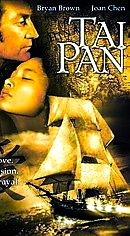
| |
Director: Daryl Duke, 1986
Dirk Struan and Tyler Brock, the heads of two rival British
trading companies, establish themselves in Hong Kong after the British acquire that colony
at the end of the first Opium War in the early 1840s. As Struan and Brock try to destroy each
other in business and personal affairs they both work to build Hong Kong into the centerpiece
of the British Empire in East Asia. A muddled and melodramatic film version of the 1966 novel
by James Clavell.
© De Laurentiis Entertainment
|
|
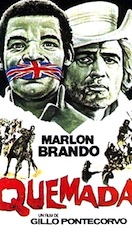
| |
Director: Gillo Pontecorvo, 1969
In the 1840s Sir William Walker (Marlon Brando), a cynical mercenary, instigates a slave revolt on the island of Queimada, a Portuguese colony, in order to weaken Britain’s rival in the Caribbean sugar trade. Years later, Walker returns to betray and overthrow the same rebels he once helped in order to facilitate the expansion of British sugar cultivation. This film was released in the US under the title Burn!
© MGM
|
|
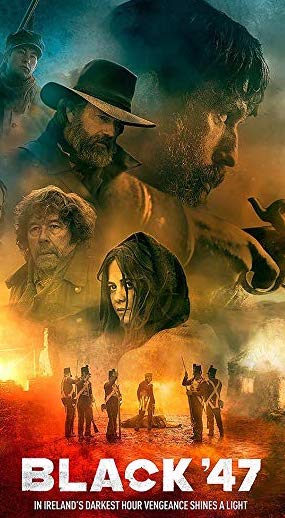
| |
Director: Lance Daly, 2018
Set in 1847, the worst year of the Great Famine in Ireland, this film follows Martin Feeney, a deserter from the Connaught Rangers, who returns from Afghanistan and India to his home in Connemara to rescue his destitute family. His vengeance against British constables and a local landlord make him a hunted man as he evades capture by the authorities. A graphic depiction of the devastation of the Irish Famine with some dialogue in the Irish language.
© IFC Films
|
|
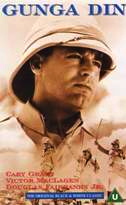
| |
Director: George Stevens, 1939
This classic film, starring Cary Grant and Douglas Fairbanks jr, was one of
the very first Hollywood depictions of India. Set in the nineteenth century,
three British soldiers and a native waterbearer must stop a secret revival of
the murderous "Thuggee" cult before it can spread across the land. The film is based
very loosely on Rudyard Kipling's 1892 ballad of the same name (though it is more like
The Three Musketeers) and is interesting for its stereotypes as much as for its story.
© RKO Pictures
|
|
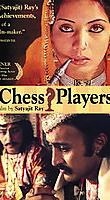
| |
Director: Satyajit Ray, 1977
In 1856, officials of the East India Company move to consolidate their
hold over North India by annexing the wealthy kingdom of Awadh. The chief minister to
the Nawab attempts to warn his ruler and local landlords of the impending danger
but they ignore him and instead indulge their obsession with playing chess.
The game becomes a metaphor for the larger game of politics played by the British as they
maneuver to capture Awadh's king. Based on the 1924 short story by Premchand.
© Shemaroo
|
|
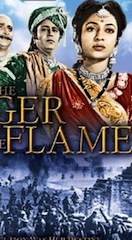
| |
Director: Sohrab Modi, 1952
This epic film tells the true story of Lakshmi Bai, Rani of the small princely
state of Jhansi in central India. The Rani of Jhansi struggled to save her
state from British annexation and died in 1857 while personally leading her
soldiers into battle. Her heroism, leadership, and sacrifice have been celebrated
in folklore and repeatedly invoked by Indian nationalists. This was the first
Indian film in Technicolor and one of the first to enjoy distribution in the US
under the title The Tiger and the Flame.
© Geneon
|
|
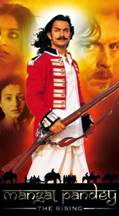
| |
Director: Ketan Mehta, 2005
This Bollywood epic is the first major film to focus on the 1857 Indian Rebellion—or
"Mutiny" as it is usually referred to in British history. The story follows the rebel
leader Mangal Pandey, an Indian sepoy in the service of the East India Company, and his
friendship with a British officer. Pandey was a real figure but one about whom little is
known. Filming began in 2003 and the opening scene was launched by Charles, Prince of Wales,
during an official royal visit to India.
© Yash Raj Films
|
|
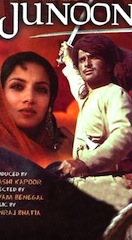
| |
Director: Shyam Benegal, 1979
Set during the Uprising of 1857, this film focuses on three women of an Anglo-Indian
family who take refuge from the rebels with a local moneylender to whom they have a
substantial debt and who, thus, has a vested interest in their survival. When they
are discovered, their lives are spared as the rebel leader, Javed, wishes to make the
youngest woman, Ruth, his second wife. The plot is further complicated when British
forces return seeking vengeance for the mutiny.
© Shemaroo
|
|
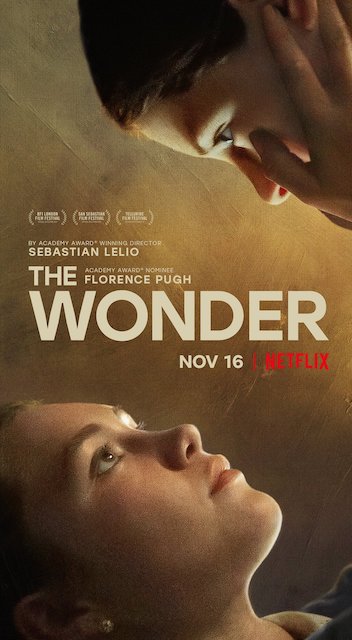
| |
Director: Sebastián Lelio, 2022
This psychological drama is set in the Irish Midlands in 1862. English nurse Elizabeth
Wright is brought to a small village to observe eleven-year-old Anna O’Donnell, who is
said to have survived without food for months but appears healthy. Is the village harboring
a saint or are there more ominous motives at work? A bleak and noirish look at religious
superstition and village politics in post-Famine rural Ireland. Based on the 2016 novel by
Emma Donoghue.
©
Netflixt
|
|
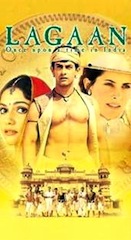
| |
Director: Ashutosh Gowariker, 2001
In 1893, the people of a small village in colonial India hope that they
will be excused from paying lagaan, the crippling land tax that
the British have imposed. Instead, the capricious officer in charge
challenges them to a game of cricket, a game totally unknown to
them. If they win, they get their wish; if they lose, the increased
tax burden will destroy their lives.
© Columbia/TriStar
|
|
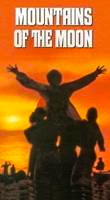
| |
Director: Bob Rafelson, 1990
This film traces the friendship between Victorian explorers Richard Burton
and John Hanning Speke that broke down during their 1856 expedition to find the source
of the Nile, a route that took them through East Africa from Zanzibar
to the shores of Lake Victoria. Based on the 1982 biographical novel by William Harrison
and the travel diaries of Burton and Speke.
© Artisan Entertainment
|
|
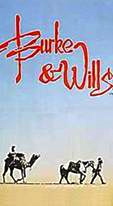
| |
Director: Graeme Clifford, 1986
This Australian film retells the story of the fateful expedition in 1860 by
explorers Robert O'Hara Burke and William John Wills to cross the continent
of Australia. Their journey began in Melbourne in the south and ended the Gulf
of Carpentaria in the north, a distance of around 1,750 miles. At that time
most of inland Australia had not been explored by non-indigenous people
and was completely unknown to the European settlers along the coasts.
© Greater Union Organisation
|
|
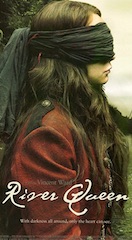
| |
Director: Vincent Ward, 2005
A lavishly filmed and intimate story set in New Zealand in the 1860s during the war between British
settlers and the Maori tribes resisting the colonization of their lands. At the furthest outpost,
a young Irish woman's life is torn apart when her son is taken from her and brought upriver by
his Maori grandfather. Unsure whether or not her son is even alive she continues her search for seven
years and is eventually forced to choose sides in this war of empire.
© Twentieth Century Fox
|
|
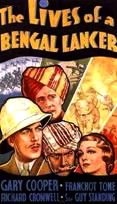
| |
Director: Henry Hathaway, 1935
The 41st Bengal Lancers are stationed on the Northwest Frontier of British India, guarding
against Afghan invaders led by the wily Oxford-educated Mohammed Khan. Experienced, though
insubordinate, Lt. McGregor (Gary Cooper) is joined by two younger officers through various
adventures and hardships. This film is a noteworthy period piece from the 1930s but is less
well known than Gunga Din, which was released a few years
later and has become a cinema classic. © Universal
|
|
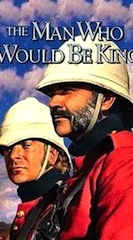
| |
Director: John Huston, 1975
This adaptation of the famous 1888 novella by Rudyard Kipling tells
the story of Daniel Dravot and Peachy Carnehan, two ex-soldiers
roaming through British India. They decide that the country is too
small for them, so they trek beyond the Northwest frontier to "Kafiristan"
in order to become kings in their own right. Kipling appears briefly
as a character in his own fictional tale.
© Warner Home Video
|
|
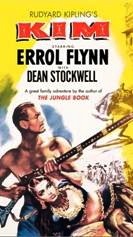
| |
Director: Victor Saville, 1950
This film, based on Rudyard Kipling's famous adventure novel from 1901, recreates
the "Great Game" of spying and surveying in British India's Northwest frontier.
The title character is a young British orphan who, like an Anglo-Indian Huck Finn,
roams the bazaars and roads of his adoptive country surviving through theft,
begging, and being a messenger and spy for the British.
© Warner Home Video
|
|
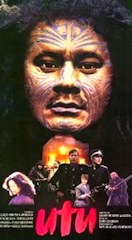
| |
Director: Geoff Murphy, 1984
Loosely based on events from Te Kooti's War in New Zealand, this is the story of a Maori warrior, Te Wheke, and his desire for utu (vengeance: literally "blood for blood") against his former allies after the British army destroys his village and kills his uncle. The film is set in the 1870s and chronicles the Maori struggle to keep the land guaranteed to them by the Treaty of Waitangi from seizure by the Pahekas (white settlers).
© Kino Video
|
|
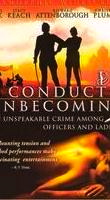
| |
Director: Michael Anderson, 1975
The plot revolves arounds a scandal in a British regiment stationed in India in the 1870s.
Lt. Drake is from a middle-class background and is eager to advance himself by making the
right impression. Lt. Millington, the son of a general, is not keen on army life and desires
to get out as soon as he possibly can. When the widow of the regiment's most honored hero
is assaulted, Drake must defend Millington from the charges in an unusual court-martial.
Based on the 1969 play by Barry England.
© Crown Films
|
|
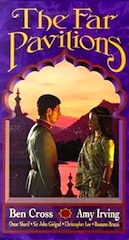
| |
Director: Peter Duffell, 1984
Based on the bestselling 1978 novel by M.M. Kaye, this mini-series is an epic of high
adventure in colonial India revolving around the romance between Anjuli, a half-caste
Indian princess, and Ash, a British officer raised in India. The Far Pavilions
drew upon and helped perpetuate a popular sense of "Raj nostalgia" in the early 1980s.
As such, it offers a lavish, entertaining, but highly romanticized vision of exotic
India under British rule.
© Acorn Media
|
|
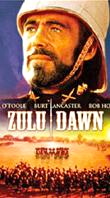
| |
Director: Douglas Hickox, 1979
This epic recounts the Battle of Isandlwana fought on 22 January 1879
in Natal, South Africa. In the course of the fighting about 1,200 British soldiers
were massacred by a force of over 20,000 Zulu warriors and the regimental
colors were lost. Isandlwana was the first engagement of the Anglo-Zulu War
and stands as one of the most shocking defeats in British military history.
Zulu Dawn was written by Cy Enfield as a prequel to his more successful
film Zulu released fifteen years earlier.
© Tango Entertainment
|
|
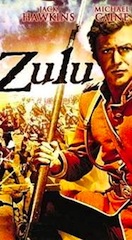
| |
Director: Cy Endfield, 1964
In 1879 the British Army suffered one of its worst defeats when
Zulu forces massacred 1,200 of its troops at Isandlwana in South Africa. A short time after the
main battle a Zulu force numbering in excess of 4,000 warriors advanced
on a British supply post at "Rorke's Drift" guarded by 139 Welsh
infantrymen. This film was made in the 1960s at a time when Britain's
colonial control over Africa was rapidly disintegrating.
© MGM/UA
|
|
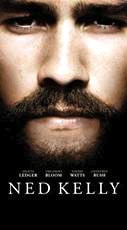
| |
Director: Gregor Jordan, 2004
Based on the true story of Edward "Ned" Kelly, at one time the most wanted man in
the British Empire. In 1870s Australia, young Ned is a bushranger living in
poverty with his family of first-generation descendants of transported Irish
convicts. His frequent trouble with the law and his resentment of colonial
class prejudice lead him to form a gang of outlaws who redistribute their loot
among the poor farming communities. Ned Kelly has become an Australian icon and is
the subject of many earlier films. © Universal
|
|
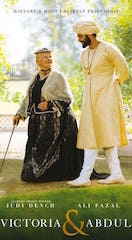
| |
Director: Stephen Frears, 2017
In 1887, Abdul Karim, a young police clerk from Agra, is selected by the British colonial goverment to travel to London to present a gift to Queen Victoria on the occasion of her Golden Jubilee. Abdul strikes up an unlikely friendship with the "Empress of India" and stays on in Britain to become her servant and, at her request, her munshi (teacher) of Urdu and the Qur'an. When Victoria dies in 1901, Abdul returns to India. Based on the book by Shrabani Basu and Abdul's diary discovered in 2010.
© BBC Films
|
|
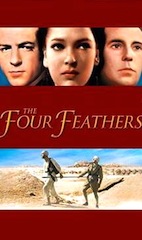
| |
Director: Zoltan Korda, 1939
A British army officer who resigns his commission on the eve of his unit's embarkation
on a mission against Sudanese rebels seeks to redeem his cowardice by secretly aiding his
former comrades disguised as an Arab. When his unit is overwhelmed and captured by the
rebels, the hero finds an opportunity to return the “feathers” of cowardice sent to him
by his former comrades by freeing them.
© MGM/UA
|
|
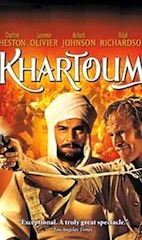
| |
Director: Basil Deardon, 1966
This Hollywood epic recounts the ill-fated struggle in 1885 of General Charles
Gordon and his British-Egyptian regiment to hold the Sudanese city of Khartoum
in the face of an attack by the forces of the Mahdi, a charismatic religious
leader bent on the expulsion of the British. Gordon's
Christian zeal and stubbornness meet their match against the messianic goal of the Mahdi to wage
a holy war against the foreign infidels.
© MGM/UA
|
|
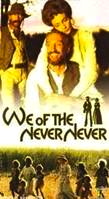
| |
Director: Igor Auzins, 1982
This film is based on the 1909 memoir by pioneer woman Jeannie Gunn chronicling her years
on a cattle station in the Australian outback and her struggle to raise a family in that
harsh and unforgiving environment. An evocative recreation of an important period in
Australian history and the tragic consequences of white immigration and settlement for the
aboriginal people.
© Tango Entertainment
|
|
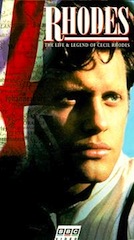
| |
Director: David Drury, 1996
This lavish miniseries tells the story of Cecil Rhodes, the British entrepreneur and
champion of empire who, in the late nineteenth century, became one of the wealthiest men in the world.
The series chronicles Rhodes' arrival in South Africa as a teenager, his rise to power through
the acquisition of a vast gold and diamond fortune, his colonial ambitions for the British
Empire in Africa, and his influence in precipitating the Boer War.
© WGBH
|
|
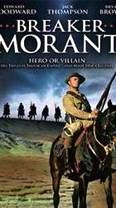
| |
Director: Bruce Beresford, 1980
The true story of three Australian army officers
serving in the Bushveldt Carbiniers, a unit of the British forces
fighting in the Boer War, who were court-martialed by the British
South African High Command for alleged atrocities. To this day many Australians
claim the men were scapegoats in an unpopular war. This courtroom drama reveals well the growing tensions between Britain and her imperial dominions.
Based on the 1979 play by Australian Kenneth Ross. © Fox Lorber
|
|
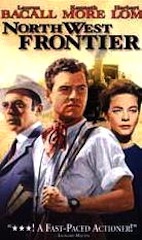
| |
Director: J. Lee Thompson, 1959
This film takes place in 1905 in the Northwest mountain regions of India where a local Hindu raja
allied to the British is battling rebel Muslim tribesmen. In order to get his son—the crown
prince—and his governess to safety the raja entrusts them to the care of a British officer.
The film is a typical Saturday morning cliffhanger, but the direction is quite good.
© RCI Home Video
|
|
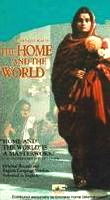
| |
Director: Satyajit Ray, 1984
In 1907, Nikhil—a wealthy yet enlightened and charitable Bengali landowner—encourages
his wife Bimala to emerge from the traditional female seclusion of purdah and introduces
her to his old friend Sandip, a radical leader in the Swadeshi movement. Bimala is
deeply affected by Sandip's revolutionary fervor and experiences a profound political
awakening that draws her out of her home and into the tumultuous world of Indian nationalism. Based
on the 1916 novel by Rabindranath Tagore.
© Columbia/TriStar
|
|
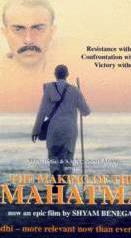
| |
Director: Shyam Benegal, 1996
The plot of this jointly produced Indian and South African film concentrates on Mohandas
Gandhi's early years in South Africa, and the crucial events there that led to his later
fame in India as "Mahatma". Close attention is given to the slow and complex development
of Gandhi's political philosophy and his deep, but at times difficult, relationship with his
wife Kasturbai. Based on the 1970 book The Apprenticeship of a Mahatma by Fatima Meer.
© Video Sound
|
|
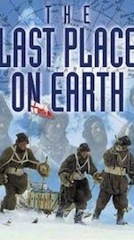
| |
Director: Ferdinand Fairfax, 1985
This miniseries recounts the tragic story of the Scott expedition's failed attempt in 1911 to be the first to reach the South Pole. Their arrival at the pole five weeks after Roald Amundsen's Norwegian team was demoralizing enough, but the return journey proved even worse. After his death, Capt. Robert Scott was lionized as an Edwardian hero but in recent years his leadership and personality have been questioned. This series, beautifully filmed in Greenland, offers a much less flattering portrayal of Scott than the glorified image in the 1948 film Scott of the Antarctic.
© Renegade Productions
|
|
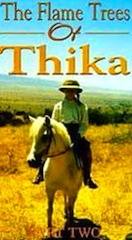
| |
Director: Roy Ward Baker, 1982
Elspeth and her unconventional parents decide to settle down in British East Africa and
begin a coffee plantation. This is a time of discovery for Elspeth, as she encounters the
incredible beauty and cruelty of nature, and new friendships with both Africans and
British expatriates. Eventually, however, the excitement of her life is disrupted by
the onset of the First World War and the changes it brings. Based on the 1959 memoir by
Elspeth Huxley.
© HBO Films
|
|
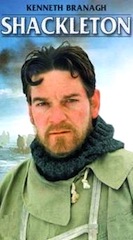
| |
Director: Charles Sturridge, 2002
This miniseries tells the story of Britain's great "Imperial Trans-Antarctic
Expedition" of 1914 led by Sir Ernest Shackleton. The plot focuses primarily on Shackleton's
epic struggle to lead his 28-man crew to safety after their expedition ship Endurance
was crushed in pack ice. By the beginning of the twentieth century, polar exploration
represented for Britain the last great frontier of imperial discovery. Filmed in Iceland and Greenland.
© A&E Home Entertainment
|
|
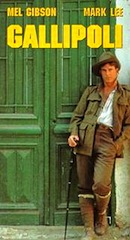
| |
Director: Peter Weir, 1981
In 1915, Archy and Frank meet at a sprinting competition in Western Australia and decide to join the Australia and New Zealand Army
Corps (the "ANZACs"). A few months later they land at Gallipoli on the Turkish coast and participate in one of the most disastrous
British campaigns of the First World War. This is one of the best
film portrayals of the horrors of war and the waste of young lives.
It also gives insight into a distinctly anti-British sense of Australian
nationalism that arose after this war. © Warner Home Video
|
|
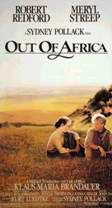
| |
Director: Sydney Pollack, 1985
The true story of Baroness Karen Blixen-Finecke, a Danish woman
who relocated to the British East Africa Protectorate (Kenya) with her husband
in 1914 to take charge of a large coffee plantation. Based on Blixen's 1937
autobiographical account written under the pen name "Isak Dineson." Out of Africa
won seven Academy Awards in 1986, including Best Picture.
© Universal
|
|
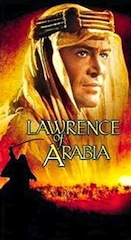
| |
Director: David Lean, 1962
This is a classic film about T.E. Lawrence, a young officer assigned
to the British Foreign Office in Cairo during the First World War.
Lawrence is given the task of riding into the Arabian Desert to
unite the various Bedouin tribes against the Turkish forces (which
are allied with Germany). The film is a highly romanticized portrayal
of Lawrence's campaign and has been the subject of much controversy
among historians and cultural critics. Based loosely on Lawrence's 1922
memoir Seven Pillars of Wisdom.
© Columbia/TriStar
|
|
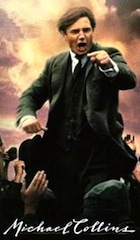
| |
Director: Neil Jordan, 1996
A biographical account of the IRA fighter and Irish statesman from
the 1916 Easter Rising to his assassination in 1922. A vivid recreation
of the Irish republican movement, the guerrilla campaign against
British forces, and the Irish Civil War. The film is historically
accurate, but the characterization of Collins, Harry Boland, and Eamon
De Valera remains controversial.
© Warner Home Video
|
|
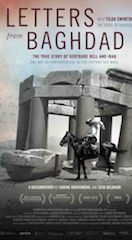
| |
Directors: Sabine Krayenbühl and Zeva Oelbaum, 2016
The extraordinary story of Gertrude Bell, CBE (1868-1926), a British adventurer, archaeologist, Arabic linguist and diplomat who helped shape the modern Middle East, particularly Iraq, after the First World War. Bell was as influential as her colleague and friend, T.E. Lawrence, through remains less well known. This documentary, narrated by Tilda Swinton, chronicles Bell's journey into the uncharted Arabian desert and all-male halls of colonial power with never-before-seen archival footage of the region shot a century ago.
© Vitagraph Films
|
|
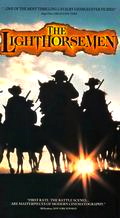
| |
Director: Simon Wincer, 1987
Set in Palestine in 1917, this epic film tells the true story of how the 4th
Australian Light Horse Brigade breached the Turkish defenses running from Gaza
to Beersheba. The little-known “Battle of Beersheba” ended in one of the last
successful cavalry charges in history and was a much-needed boost for British
and imperial morale after the disastrous defeat at Gallipoli two years earlier.
This lavish Australian film received little attention internationally but was
extremely popular with home audiences. © RKO Pictures
|
|

| |
Director: Deborah Warner, 1999
Set in Co. Cork in 1920, this film revolves around the lives and romantic
complications of an aristocratic Anglo-Irish family living on their estate
in the midst of the Irish war for independence. A compelling look at the
last days of the Protestant Ascendancy and of their own sense of Irishness
being tested through the changing national climate of their country and
an uncertain future. Based on the 1929 novel by Elizabeth Bowen.
© Lions Gate
|
|
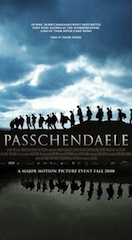
| |
Director: Paul Gross, 2008
The plot of this Canadian film follows Michael Dunne, a troubled veteran returning to Alberta to recover from his wounds after decorated service in the Battle of Vimy Ridge. Dunne begins a relationship with a young nurse and reenlists. He returns with the 10th Battalion of the Canadian Expeditionary Force to fight in the Battle of Passchendaele in fall of 1917. Though a bit melodramatic, the film portrays well Canada’s significant contribution to the Allied war effort.
© Rhombus Media
|
|
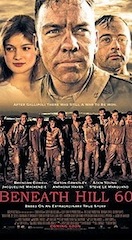
| |
Director: Jeremy Sims, 2010
The story of the 1st Australian Tunneling Company's effort to mine beneath a German bunker in the Ypres Salient at the start of the Battle of Messines in June 1917. Their extremely perilous mission was to detonate an enormous explosive charge to aid the advance of British troops. The screenplay is based on an account of the ordeal written by Capt. Oliver Woodward, the officer who led the mission.
© Paramount
|
|
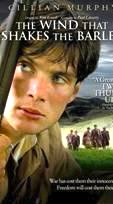
| |
Director: Ken Loach, 2006
In 1919, Irish volunteers wage a guerrilla campaign
against the ruthless "Black and Tan" paramilitary squads arriving from Britain
to block Ireland's bid for independence. Driven by a deep sense of duty and love of
country, Damien abandons a promising career as a doctor and joins his brother,
Teddy, in this dangerous and violent struggle. Their victory is followed in 1922 by the
Irish Civil War that pits these same comrades against each other. The title comes from a famous Irish ballad. This film won the Palme d'Or at the 2006 Cannes Film Festival. © Sixteen Films
|
|
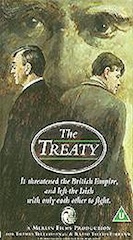
| |
Director: Jonathan Lewis, 1992
This TV movie, produced for RTÉ, focuses on the painstaking negotiations in late 1921 between the provisional government of the Irish Republic and representatives of the British Government under David Lloyd George. An intelligent and even-handed film about a controversial moment in Irish political history that ended the Anglo-Irish War but split the republican movement and led to the Irish Civil War.
© RTÉ Films
|
|
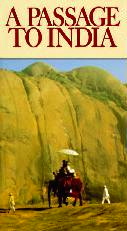
| |
Director: David Lean, 1984
Tensions between Indians and the colonial British residents of the town of Chandrapore boil over
when a visiting Englishwoman, Adela Quested, accuses a young Indian physician, Dr. Aziz, of rape
during a tour of the local caverns. Based on E.M. Forster's 1924 novel, this film can be seen as
a study of colonial relations, perceived differences between East and West, and the nature of memory
and friendship.
© Columbia/TriStar
|
|
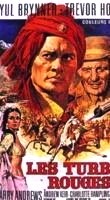
| |
Director: Ken Annakin, 1967
Set in the 1920s, this film is based very loosely on the true exploits
of the notorious Bhanta dacoit, Sultana, and the colonial police officer,
Freddy Young, whose mission it was to capture him. Sultana (Yul Brynner)
and Young (Trevor Howard) develop a strong respect for each other during
their game of evasion and pursuit across the hills and plains of North
India. However, the portrayal of Sultana as a nationalist rebel and Young as ambivalent
toward British imperialism in India is historically inaccurate. © Rank Organisation
|
|
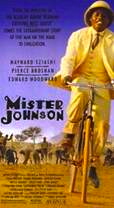
| |
Director: Bruce Beresford, 1991
Set in colonial Nigeria in 1923, this film tells the story of Harry Rudbeck,
an ambitious magistrate who wants to build a road connecting his backwater post
to the outside world. Struggling to find ways around colonial bureaucracy, he
relies on his resourceful African clerk, Mr. Johnson. Yet Johnson is an oddity:
an educated black man who does not really fit in with either his fellow Africans
or the British. Based on the 1952 novel by Anglo-Irish writer Joyce Cary.
© United American Video
|
|
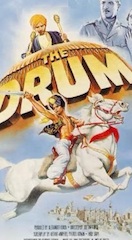
| |
Zoltan Korda, 1938
Set in the Northwest Frontier, the plot revolves around an uprising against the British and their Indian allies. The film offers a gallery of imperial stereotypes: the gallant English officer and his devoted wife, the plucky Scottish drummer, the treacherous Indian rebel, and the obsequious loyal prince. Though popular with British audiences, The Drum caused protests in Madras and Bombay, where it was viewed—not unreasonably—as pro-British propaganda. Some filming was done in the princely state of Chitral, now the province of Khyber-Pakthunkhwa, Pakistan.
© United Artists
|
|
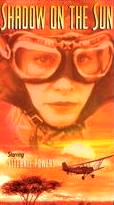
| |
Tony Richardson, 1988
This television series depicts the remarkable life of Beryl Markham, a renowned aviatrix, author, and
adventurer. Raised by her father in Kenya, young Beryl hunted with Masai tribesmen, bred
racehorses, flew as a bush pilot, and repeatedly defied the constraining social and gender
norms of the British colonial establishment. Based on Markham's 1942 memoir West with
the Night.
© Starmaker Entertainment
|
|
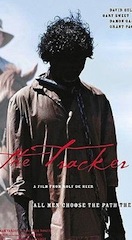
| |
Director: Rolf de Heer, 2002
In 1922 in the Australian Outback a colonial policeman and two deputies set out on horseback to track down and capture the aborigine accused of murdering a white woman. The posse relies upon the skills of an indigenous Australian tracker to help find the fugitive. The dynamic among the group offers a compelling view of racial attitudes among Australia's white population. The film is beautifully shot in the Arkaroola Sanctuary in South Australia's Flinders Ranges.
© Vertigo Productions
|
|
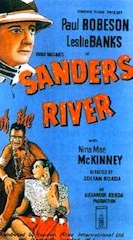
| |
Director: Zoltan Korda, 1935
A British district officer in 1930s Nigeria governs his area strictly but justly and, with the aid of a loyal native chief, takes on local gunrunners and slavers. The chief was played by African-American actor and activist Paul Robeson who later became so disillusioned with the editing that he publically disowned the film and attempted, unsuccessfully, to buy back all the prints to prevent it from ever being shown. The film is based on the stories of Edgar Wallace.
© Criterion
|
|
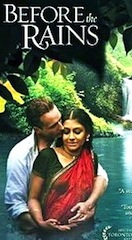
| |
Director: Santosh Sivan, 2007
Set in 1937 in the Malabar District of the Madras Presidency, this film focuses on an affair between an English spice plantation owner and his Indian housekeeper that ends tragically. The central character is T.K., a servant on the plantation, who discovers the affair and is torn by loyalty to his employer, village politics, and the rising tide of Indian nationalism in the waning years of the British Raj.
© Lions Gate
|
|
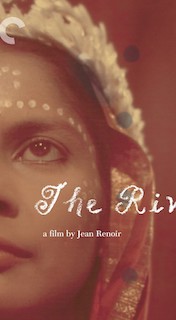
| |
Director: Jean Renoir, 1951
This coming of age story revolves around Harriet, the daughter of an English jute mill owner, who lives in a house on the banks of the Ganges. Harriet's family life and friendships immerse her in a world that blends Indian and western culture. Based on the 1946 novel by Margaret Rumer Godden, The River was the first Technicolor film made in India. Martin Scorsese saw this film as a child and it had a profound effect on his later development as a filmmaker. Satyajit Ray, the great Bengali director, also cited The River as a major influence on his style of filmmaking.
© Criterion
|
|
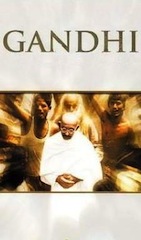
| |
Director: Richard Attenborough, 1982
This epic film portrays the life of Mohandas K. Gandhi from his days
as a young lawyer in South Africa to his death as the spiritual
leader of the Indian nation shortly after independence. It also
provides a vivid account of the Indian nationalist movement from
its beginnings through the independence and partition of the Indian
subcontinent. This critically-acclaimed film took decades to produce and won eight Academy Awards in 1983.
© Columbia/TriStar
|
|
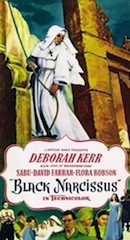
| |
Directors: Michael Powell and Emeric Pressburger, 1947
This strange and haunting film focuses on a group of Anglican nuns who arrive in a remote location in the Himalayas to set up a school and clinic for the local residents. The fragmentation and collapse of their own community force them to abandon the mission. The film was released a few months before India’s independence and some critics speculate that the plot is an allegory about Britain’s retreat from India. Based on the 1939 novel by Margaret Rumer Godden.
© Criterion
|
|
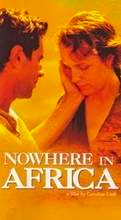
| |
Director: Caroline Link, 2001
In the late 1930s, a Jewish family, the Redlichs, reluctantly emigrate from Germany
to British East Africa to manage a farm. At first, not all members of the family
come to accept their new life in such an "uncivilized" society. However, with a return
to Germany impossible given the persecution of Jews, the Redlichs must make the
adjustment. They soon find themselves treated more humanely by Africans than they ever
were in the supposedly civilized Europe from which they fled. Based on the 1995 autobiographical novel by Stefanie Zweig.
© Sony Pictures
|
|
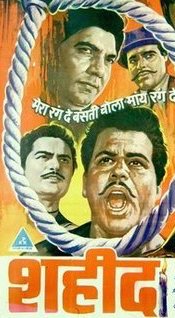
| |
Director: S. Ram Sharma, 1965
This classic of Indian cinema portrays the controversial life
and death of Bhagat Singh, the Punjabi revolutionary who took up arms
against colonial rule in India. Condemned by the British as a terrorist
and hailed by many Indians as a freedom fighter, Bhagat Singh was
initially inspired by the Gandhian example of non-violent non-cooperation
but later rejected it after growing frustrated at its apparent ineffectiveness.
© Digital Entertainment
|
|
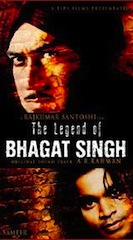
| |
Director: Raj Kumar Santoshi, 2002
This 2002 film retells the inspiring tale of Bhagat Singh made famous in
Shaheed
(1965). In the late 1920s, the revolutionaries of the Hindustan Socialist Republican
Army carried out a campaign of bombings and assassinations in Punjab to force the British
out of India. In 1931, Bhagat Singh and two companions were sentenced to death and hanged
in Lahore and, in the process, became martyrs for the Indian nation.
© Tips Films Pvt. Ltd.
|
|
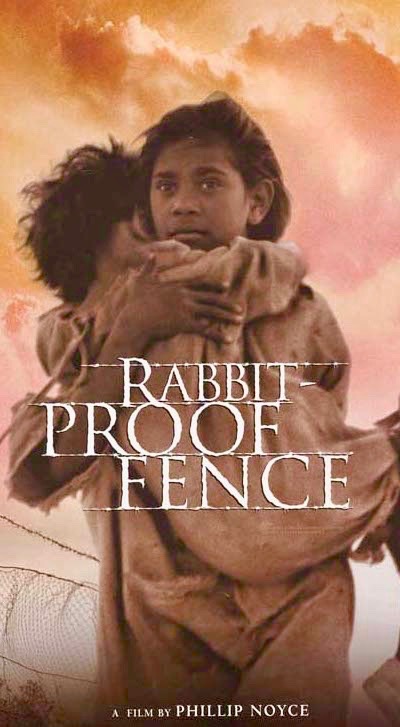
| |
Director: Phillip Noyce, 2002
In 1905 the Australian government authorized the forcible removal of aboriginal
children from their mothers' care and sent them hundreds of miles away to schools
designed to stamp out their culture and train them for domestic service. This
film tells the true story of three girls who in 1931 escaped and found their way
home over a thousand miles of outback. These children were part of what have come
to be known as the "stolen generations" and remains a dark chapter in Australian and imperial
history.
© Miramax
|
|
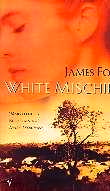
| |
Director: Michael Radford, 1988
Set in British East Africa (Kenya) during the 1940s, this film offers a fascinating
study of the decadence and moral bankruptcy of life in "Happy Valley," a colonial
enclave in the eastern highlands outside Nairobi. The plot revolves around a lovers'
triangle that ends in murder, but it also highlights the arrogance, idleness, and
debauchery of the colonial expatriates. Based on the 1987 novel by James Fox.
© Nelson Entertainment
|
|
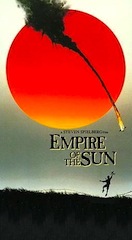
| |
Director: Steven Spielberg, 1987
Jamie Graham is an upper-class English schoolboy separated from his family
after the Japanese Army invades the British sector of the international
settlement in Shanghai in December 1941. Reduced to living on the street
and fighting for food, he is eventually interned in a Japanese POW camp for
British civilians. Amidst the sickness and food shortages in the camp, Jamie
attempts to reconstruct his former life. Based on the 1984 autobiographical
novel by J.G. Ballard.
© Warner Home Video
|
|
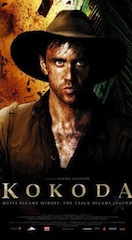
| |
Director: Alister Grierson, 2006
In December 1941, Australia had already deployed most of its professional army, the Australian Imperial Force (AIF) to North Africa and Europe. When Singapore fell in 1942, the AIF lost another division. The only troops protecting Australia from a Japanese invasion were the untrained conscripts in New Guinea. These outnumbered men were rushed northward over the Owen Stanley Range—the infamous "Kokoda Track"—to fight the Japanese. This film tells the harrowing story of one patrol.
© Palace Films
|
|
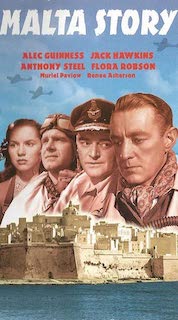
| |
Director: Brian Desmond Hurst, 1953
This film focuses on the heroic defense of Malta, the British Empire's vital fortress colony in
the Mediterranean, during the Second World War. While the plot focuses on the exploits of a
British reconnaissance pilot stationed on the island and his romance with a young Maltese
woman, much attention is given to the courage of the Maltese people themselves in successfully withstanding
one of the longest and most destructive bombardment campaigns of the war.
© MGM/UA
|
|
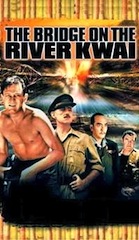
| |
Director: David Lean, 1957
During the Second World War, British, Australian, Dutch and American POWs are given the task,
by their Japanese captors, of building a railway bridge in the harsh Southeast Asian
jungle. Led by Colonel Nicholson, a stereotypically reserved and stoical English officer, the
prisoners score a moral victory over the Japanese by not only building the bridge,
but running the whole show. Based on the 1952 novel by Pierre Boulle.
© Columbia/TriStar
|
|
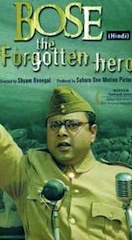
| |
Director: Shyam Benegal, 2005
This film focuses on the final years in the life of Subhas Chandra Bose, one of
the most controversial figures in Indian nationalism. A rising star in the freedom
movement, Bose fell out with Gandhi and was pushed to the margins of Congress politics.
At the outbreak of war in 1939, he fled to Germany and later conspired with Japanese
forces to lead an army of Indian soldiers against the British during the Burma campaign.
Bose remains a hero to many Indians, especially in his native Bengal.
© Sahara Media
|
|
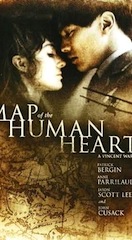
| |
Director: Vincent Ward, 1992
This haunting film follows the life of Avik, an Inuit boy from Nunavut in the Canadian Arctic. The plot begins with Avik’s friendship in the 1930s with a British surveyor who brings him south to be treated for tuberculosis, to his first love with a Métis girl in Montréal, to his wartime service in the RCAF and his participation in the infamous firebombing of Dresden, to his return home and descent into alcoholism and depression.
© Polygram
|
|

| |
Director: Justin Kurzel, 2024
An Australian doctor is haunted by memories of an affair with his uncle's wife and of
his subsequent experiences of brutality as a POW of the Japanese during the construction
of the infamous Siam-Burma Railway during the Second World War. Decades later, he finds
that his growing celebrity as a surviving POW comes into conflict with his feelings of
failure and guilt. Based on the 2013 Booker Prize-winning novel by Richard
Flanagan.
© Polygram
|
|
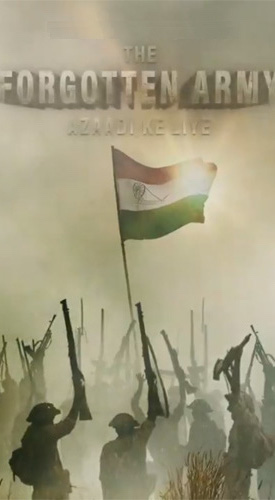
| |
Director: Kabir Khan, 2020
This limited series tells the story of the Azad Hind Fauj, the Indian National Army, formed
from Indian Army prisoners and civilians after the fall of Singapore to the Japanese in early
1942. Led by the Bengali nationalist Subhas Chandra Bose, the men and women of the INA fought
alongside Japanese forces in Burma in 1944-45. After World War II, the captured INA officers
were tried for treason, but their example inspired Indian nationalists and accelerated the end
of British rule in India. © Amazon
|
|
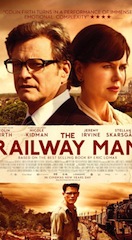
| |
Director: Jonathan Teplitzsky, 2013
The true story of Eric Lomax, a British soldier who becomes a POW of the Japanese after the fall of Singapore in February 1942. Forced to work building the infamous "death railway" in Southeast Asia, Lomax suffers gruesome torture at the hands of his Japanese captors. He survives the experience but is left deeply traumatized. Decades later he sets out to confront the man responsible for his ordeal. A moving film based on Lomax’s 1995 memoir.
© Lions Gate
|
|
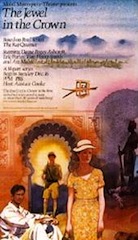
| |
Director: Christopher Morahan, 1984
This fourteen-part mini-series originally produced for Granada
Television in Britain tells the story of a small group of Britons
and Indians from the middle of the Second World War to the independence
of India and Pakistan in 1947. The historical authenticity of the plot
and complex characters provide an excellent glimpse into the psyche
of the British in India during the final days of the "Raj." Based on
Paul Scott's Raj Quartet novels published between 1965 and 1975.
© A&E Home Entertainment
|
|
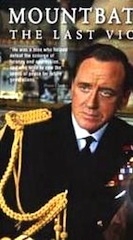
| |
Director: Tom Clegg, 1986
This TV mini-series traces
the events and experiences of the last viceroy of India, Lord Louis
Mountbatten, and his wife Lady Edwina. In early 1947, Mountbatten arrived in India
to oversee the transfer of power to independent India and Pakistan.
The film captures well the challenges, dilemmas, and tragedies
involved in the British withdrawal and the partition of the Indian subcontinent.
© Bonneville Video
|
|
<
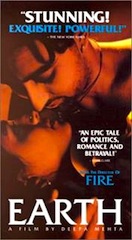
| |
Director: Deepa Mehta, 1998
The movie opens in the city of Lahore in Punjab in 1947 before India and
Pakistan became independent. Lahore is a cosmopolitan city, depicted
by a group of working class friends from different religions. The
rest of the movie chronicles the fate of this group and the maddening
religious conflict that sweeps across Punjab as the partition of
the two countries is decided and Lahore is given to Pakistan. Based on the 1988
semi-autobiographical novel The Ice Candy Man by Bapsi Sidhwa. © New Yorker Films
|
|
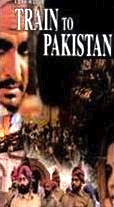
| |
Director: Pamela Rooks, 1998
Tensions run high in a Punjab village in the run-up to partition between independent
India and Pakistan. Sikhs living in this border town have heard rumors of Muslims
assaulting, killing, and raping other Sikhs and Hindus—many of whom are their
friends and relatives. Enraged at the breakdown of civil order and eager for
revenge, they plan their own attack upon a crowded train full of Muslims headed
to Pakistan. Based on the 1956 novel by Khushwant Singh.
© Video Sound
|
|
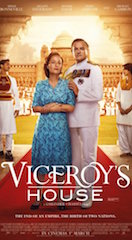
| |
Director: Director: Gurinder Chadha, 2017
The transfer of power and partition of India and Pakistan told largely through the
experiences of the house staff at the stately New Delhi residence of the viceroy
following the arrival of Lord and Lady Mountbatten in early 1947. As the clock ticks
down to independence, the servants prepare for an uncertain future for themselves and
their families. This film was lambasted by historians for the unsupported premise that
partition was conceived as a conspiracy by Churchill's wartime government to contain
postwar Soviet expansion into the oil-rich Middle East. © Pathé
|
|
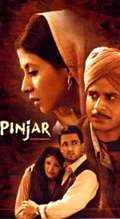
| |
Director: Chandra Prakash Dwivedi, 2003
Lajjo is a recently married Hindu woman abducted by Muslims during the chaos
of partition and taken to Pakistan. There she is forced to become the second
wife of an abusive and controlling alcoholic. Her determined sister-in-law,
Puro, sets out to search for her, encouraged by her brother, but cautioned
by her parents who would prefer not to lose another child. A compelling
story that deals with abduction, a widespread and largely overlooked aspect
of partition violence.
© Lucky Star Entertainment
|
|
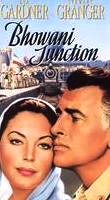
| |
Director: George Cukor, 1956
In the summer of 1947 the British are on the verge of finally leaving India.
Among the few sorry to see them leave are the Anglo-Indians—half British and
half Indian. They are going to miss the patronage of their white cousins, the
job reservations, and the important status and positions they currently hold.
This film revolves around Victoria, an Anglo-Indian woman and her relationships
with British, Indian, and Anglo-Indian men. Based on the 1954 novel by John Masters.
© MGM
|
|
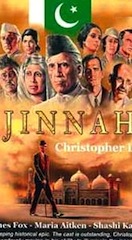
| |
Director: Jamil Dehlavi, 1998
Muhammad Ali Jinnah being judged in the afterlife is the premise of this
controversial film about the founder of Pakistan. The story traces Jinnah's political
development from champion of Hindu-Muslim unity to his demand for a separate Muslim state.
The film was meant to revise the largely unflattering portrayal of Jinnah presented
in earlier films such as Sir David Attenborough's Gandhi.
Yet the casting of an Englishman (veteran English actor Sir Christopher Lee) in the
title role was criticized by some Pakistanis.
© Dehlavi Films
|
|
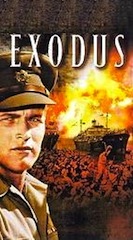
| |
Director: Otto Preminger, 1960
This Hollywood epic portrays the last days of the British mandate of Palestine and the
birth of the state of Israel. The plot revolves around a group of Jewish war survivors
whose refugee ship, Exodus, is diverted from Cyprus to Haifa. There they join
a kibbutz and must reconcile themselves to their Arab neighbors as well as more militant
Jewish fighters. Meanwhile British authorities struggle to keep order and prepare to
partition the country and withdraw. Based on the bestselling 1958 novel by Leon
Uris. © MGM/UA
|
|
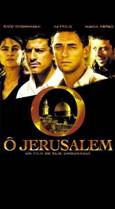
| |
Director: Elie Chouraqui, 2006
This film revolves around the friendship between two men, an Arab and a Jew, during
the final days of Britain's Palestine mandate and leading up to the birth of the state of
Israel. As British authorities in the mandate lose the will to stay and keep order
Jews and Arabs fight for control of the holy city and to determine the fate of the
region. Based on the bestselling 1972 book by Larry Collins and Dominique Lapierre.
© Les Films de l'Instant
|
|
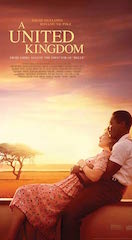
| |
Director: Amma Asante, 2016
In 1947, Seretse Khama, a law student in London and the crown prince of the Protectorate
of Bechuanaland (present-day Botswana), meets and marries Ruth Williams, an English
clerk. The marriage offends racial sensibilities in both families and threatens Khama's
claim to the throne. The couple face enormous stress on their relationship and family
life as they maneuver diplomatically with British colonial officials eager to placate
the racism of neighboring South Africa while maintaining control over Bechuanaland's
vast mineral resources.
© Pathé
|
|
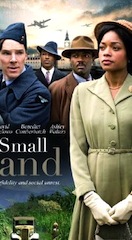
| |
Director: John Alexander, 2009
Born into a broken home and an impoverished life in colonial Jamaica, Hortense longs
for a fulfilling life in England. During World War II the opportunity arises and a
newly-married Hortense and her husband are soon on their way to the promised land of
postwar Britain. The immigrant couple's dreams are soon tested by the harsh realities of
racism and poverty in the heart of a declining empire. Based on the 2004 novel by Andrea Levy.
© Ruby Television for BBC
|
|
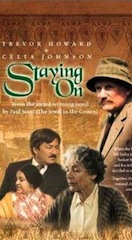
| |
Director: Silvio Narizzano, 1979
Based on Paul Scott's Booker Prize-winning novel from 1977, this film tells the story of
retired colonel Tusker Smalley and his wife Lucy who made the decision to "stay on"
in India after the British withdrew in 1947 and as most of their friends returned home.
Now retired, Tusker and Lucy are the only remaining British residents in a once-busy
hill station. Problems arise when the Indian owner of their bungalow plans to change
the one corner of India in which they hoped to preserve their Anglo-Indian life.
© HBO Films
|
|

| |
Directors: Ismail Merchant and Madhur Jaffrey, 1999
In 1954, seven years after India has gained independence from Britain, many Indians
still feel like second-class citizens in their own country, as the nation's sovereignty
has not immediately erased the perception that the British are superior to Indians. An
example is Cotton Mary, an Anglo-Indian nurse in the employment of the wife of a BBC
correspondent. Mary claims she is the daughter of a British army officer (although she
has no firm evidence) and views herself as more British than Indian.
© Universal
|
|

| |
Directors: Harry Bradbeer, Coky Giedroyc, Jamie Payne, 2011
This British television series offers a behind-the-scenes drama about a TV news and current affairs program launched by the BBC in 1956 shortly before the Suez crisis. The series has received mixed reviews, but most critics have been impressed by the attention to historical detail. An evocative recreation of the reaction of metropolitan Britain to the Suez crisis, an event that acelerated the process of decolonization as Britain retreated from its empire.
© BBC Films
|
|
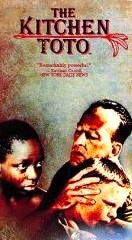
| |
Director: Harry Hook, 1988
Mwangi is a Kikuyu boy whose preacher father is murdered by Mau Mau revolutionaries
in 1950. Soon afterward he goes to work as a house servant for a colonial police
officer, his wife, and young son. When the revolutionaries kidnap Mwangi and make
him swear allegiance to their cause, a potentially explosive situation arises.
A gripping story about one of the bloodiest episodes in the history of British
decolonization and the birth of modern Kenya.
© Warner Home Video
|
|
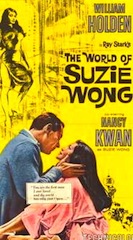
| |
Director: Richard Quine, 1960
An American architect arrives in Hong Kong and soon falls in love with a charming and seductive Wan Chai bargirl. The story is little more than a clichéd and idealized romance but the on-location filming and generous attention given to the setting provide a vivid glimpse into late 1950s Hong Kong, an important economic hub and cultural crossroads in Britain’s declining empire. Based on the 1957 novel by Richard Mason.
© Paramount
|
|
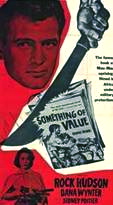
| |
Director: Richard Brooks, 1957
Peter, a Kenya settler boy, and Kimani, a Kikuyu, are childhood friends. After
his father is jailed for following tribal customs, Kimani joins the Mau Mau
rebellion. Kimani believes in the cause, but does not agree with the indiscriminate
killing of women, children, and those who will not join or support the rebels.
Peter, even after the deaths of his little sister and brother by the Mau Mau, still
believes that there is a chance for peaceful co-existence. Based on the 1955 novel
by Robert C. Ruark. © MGM
|
|
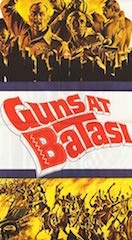
| |
Director: John Guillermin, 1964
Regimental Sergeant-Major Lauderdale is an old-school martinet assigned with other British NCOs and officers to a remote African outpost to train soldiers of a newly independent former colony (a thinly veiled Kenya). When a populist uprising overthrows the government, soldiers loyal to the new regime take over the barracks prompting a tense standoff with Lauderdale and his men. Released in 1964, at the height of decolonization, this film is a useful artifact of British feelings about the end of their empire.
© Twentieth Century Fox
|
|
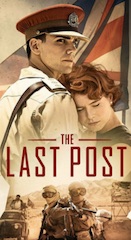
| |
Directors: Miranda Bowen and Jonny Campbell, 2017
In 1965, a detachment of the Royal Military Police keep an uneasy peace in the colony of Aden, an important military and naval outpost in Britain's declining postwar empire. This television series follows the professional and personal lives of the RMP men and their families as pan-Arab nationalists take up arms against British rule. The Aden Emergency resulted in the withdrawal of British forces at the end of 1967 followed by the independence of Yemen.
© BBC
|
|
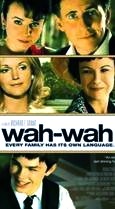
| |
Director: Richard E. Grant, 2005
Richard E. Grant's semi-autobiographical tale of his childhood in Swaziland in the
1960s during the last days of the British Empire in Africa. Grant relates the story
of Ralph Compton, a twelve-year-old English boy whose parents' traumatic separation
and family's disintegration reflect the end of British rule in the colony and the
uncertain future for colonial expatriates after independence.
© Scion Films
|
|
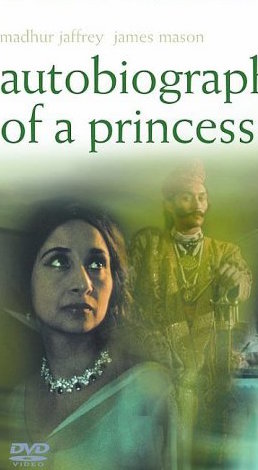
| |
Director: James Ivory, 1975
On the anniversary of her father's death, an exiled Indian princess (Madhur Jaffrey) celebrates his memory in her London flat by serving tea and showing a selection of 16mm home movies to her guest, her father's secretary, Cyril Sahib (James Mason). A wistful look back at the princely states of British India featuring rare archival film footage from the erstwhile states of Jaipur, Jodhpur and Bikaner.
© Criterion
|
|
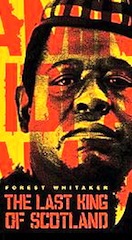
| |
Director: Kevin Macdonald, 2006
Nine years after Uganda gained its independence from Britain in 1962, a former
private in the King's African Rifles named Idi Amin seized power. This film is
a fictionalized version of the reign of Amin as seen through the eyes of Nicholas
Garrigan, a young Scottish doctor who quite accidentally becomes the dictator's
personal physician. A chilling portrait of Amin's erratic and murderous regime
as well as the trauma of postcolonial Africa in the wake of British rule.
Based on the 1998 novel by Giles Foden. © Fox Searchlight
|
|
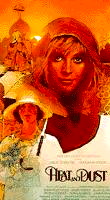
| |
Director: James Ivory, 1982
Anne, an Englishwoman, is investigating the life of her great-aunt Olivia whose
destiny had always been shrouded with scandal. The search leads back to the early
1920s, when Olivia, recently married, came to live with her civil servant husband
in an Indian princely state. Slowly, Anne discovers, upon getting pregnant by an
Indian local in the early '80s, that she and Olivia have more than a little in
common. Based on the 1975 novel by Ruth Prawar Jhabvala.
© Home Vision Entertainment
|
|
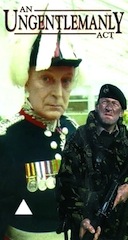
| |
Director: Stuart Urban, 1992
This film portrays the days and hours before and during Argentina's 1982 invasion of the Falkland Islands, a British dependency in the South Atlantic. As Argentine forces land on the eastern island and make their way towards the town of Stanley, a detachment of Royal Marines prepares to defend the governor, his family, and their fellow islanders from the invaders. Based on actual accounts (though with some inaccuracies) the film aired on British TV during the tenth anniversary of the Falklands War.
© BFS Entertainment
|
|
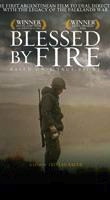
| |
Director: Tristán Bauer, 2005
This Argentine film tells the story of the Falklands War through a series of
flashbacks among veterans living with the scars of their country's "unwinnable"
war. The plot takes the men back to their foxholes on the windswept and desolate
Malvinas (Falklands) during the harrowing battles they fought with British
forces sent to retake the islands. Victory in the Falklands revived Britain's pride in its former empire and was in some sense a redemption from the humiliation of the Suez crisis of 1956.
© Canal + España
|
|
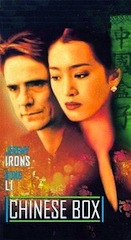
| |
Director: Wayne Wang, 1997
This film is set in Hong Kong during its final days as a British
colony before the transfer of power in 1997. The story revolves
around the ambiguous and troubled relationship between a British
journalist and a young Chinese woman, but in many ways it reflects
the long-term relationship between the colonial British and the
Chinese residents of Hong Kong.
© Vidmark/Trimark
|
|

